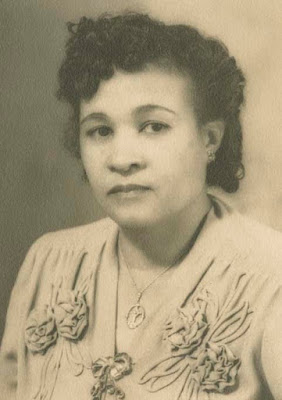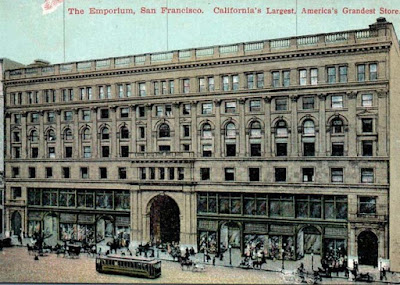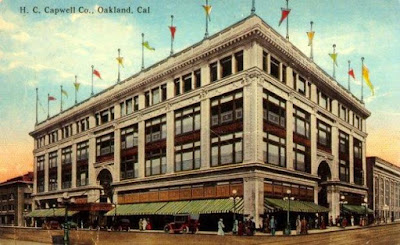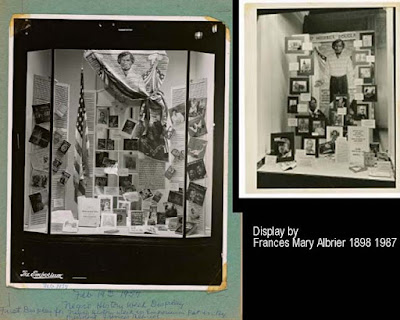Frederick Douglass Quilt, about 1950,
Historical Quilting Club of Marin County, California
Emory University. Robert Woodruff Library
In 1968 California's East Bay Negro Historical Society interviewed local activist Frances Albrier, who recalled her 1957 display for Negro History Week at San Francisco's Emporium department store, a rather ground-breaking celebration of Black history.
Frances Mary Albrier (1898-1987)
She described making a cold call, asking to see the store manager and "told him about a quilt that we had, the Frederick Douglass quilt, that had been made during the war years by a black and white historical society in Sausalito, and it was quite a work of art."
He gave her a window on Market Street for her display, which was so successful she organized a second display at Capwell's department store in Oakland.
Frances saved photos in her scrapbook, now in the Frances Albrier collection of the Smithsonian's National Museum of African American History and Culture.
The display on the left with the quilt draped is from the February
San Francisco exhibit; the other is Capwell's window in Oakland.
The story of the pair of African-American history
quilts made by Marin County's Historical Quilting Club
has been told often, but it's interesting to see
the way they were designed and used to celebrate Black History Week.
The club began the first quilt portraying Harriet
Tubman in 1951.
Sue Bailey Thurman and designer Ben Irvin in 1968 pictured in the
San Francisco Examiner at a Unitarian Church.
That article tells us the club planned a third quilt honoring Sojourner Truth but never really began it. The quilts were actually made for such display, often shown in Bay Area churches and fairs in the 1950s and '60s. Black History Week (now February's Black History Month) was the 1926 idea of historian Carter G. Woodson (1875-1950) who realized the effectiveness of such a promotion in education. The quilts were undoubtedly an effective visual.
Sue Bailey Thurman (1903-1996)
Sue Bailey Thurman, another Bay Area activist, purchased (?) the quilts and arranged for displays. She and her husband headed the Howard Thurman Educational Trust Foundation, which exhibited the quilts in venues such as New York's 1965 World’s Fair. She donated both quilts to Emory University's Robert Woodruff Library in Atlanta.
Where they are on permanent display outside the Archives Center
(Not to scare any curators---let's hope it's low light conditions.)
Read Eve Goldberg's post on the Negro History Quilt Club
https://americanpopularculture.com/archive/politics/quiltclub.htm
I did a post on these quilts several years ago:












No comments:
Post a Comment